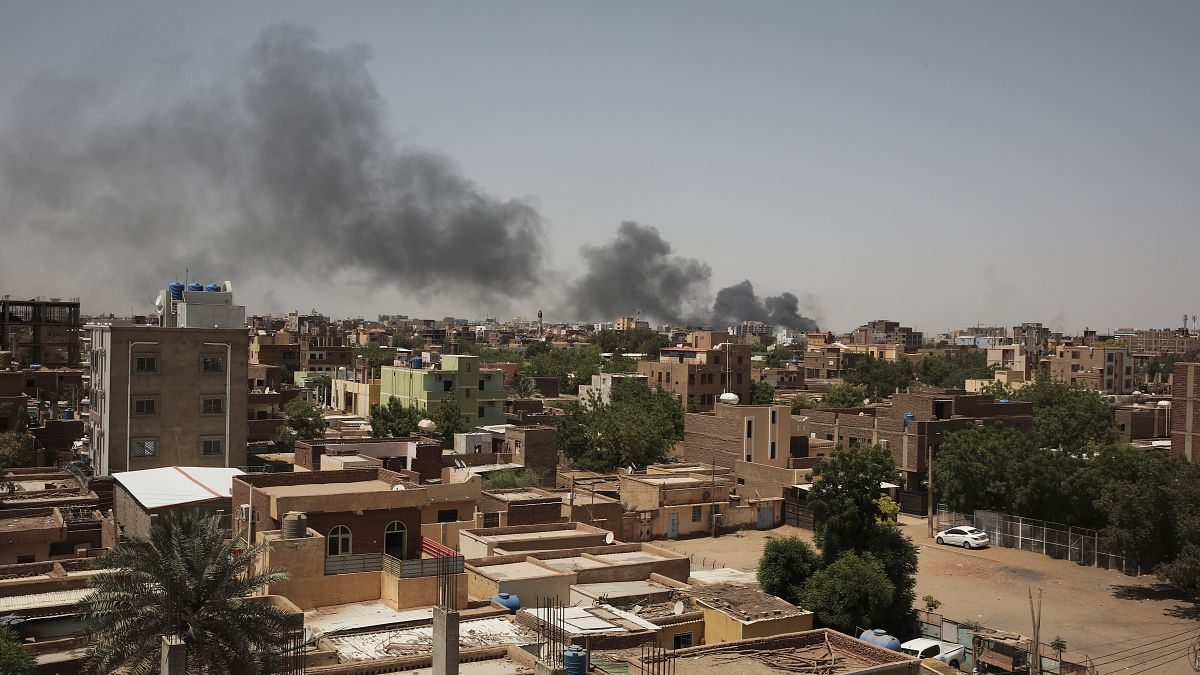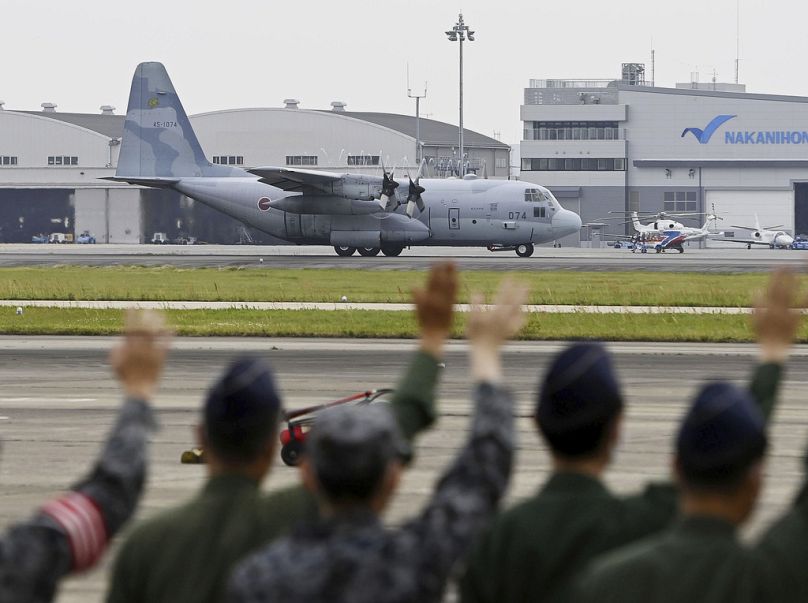Sudan's army general has said he will help foreigners leave the country. Saudi nationals who had escaped arrived by sea in Jeddah, alongside ships carrying citizens of other countries.
The Sudanese army says it is coordinating efforts to evacuate foreign citizens and diplomats from Sudan on military aircraft, as the bloody fighting that has engulfed the vast African nation entered its second week.
Army chief Gen. Abdel Fattah Burhan said he would facilitate the evacuation of American, British, Chinese and French citizens and diplomats from Sudan after speaking with the leaders of several countries that had requested help. The prospect has vexed officials as most major airports have become battlegrounds and movement out of the capital, Khartoum, has proven intensely dangerous.
Burhan "agreed to provide the necessary assistance to secure such evacuations for various countries," Sudan's military said.
Mass rescues of foreign citizens
Questions have swirled over how the mass rescues of foreign citizens would unfold, with Sudan's main international airport closed and millions of people sheltering indoors. As battles between the Sudanese army led by Burhan and a rival powerful paramilitary group rage in and around Khartoum, including in residential areas, foreign countries have struggled to repatriate their citizens — many trapped in their homes as food supplies dwindle.
The White House would not confirm the Sudanese military's announcement. "We have made very clear to both sides that they are responsible for ensuring the protection of civilians and noncombatants," the National Security Council said.
On Friday, the US said it had no plans for a government-coordinated evacuation of the estimated 16,000 American citizens trapped in Sudan. It has however evacuated embassy workers and their families.
Saudi Arabia announced the successful repatriation of some of its citizens on Saturday, sharing footage of Saudi nationals and other foreigners welcomed with chocolate and flowers as they stepped off an apparent evacuation ship at the Saudi port of Jeddah.
Officials did not elaborate on exactly how the rescue unfolded but Burhan said the Saudi diplomats and nationals had first travelled by land to Port Sudan, the country's main seaport on the Red Sea. He said that Jordan's diplomats would soon be evacuated in the same way. The port is in Sudan's far east, some 840 kilometres (520 miles) from Khartoum.
In a security alert, the US Embassy in Sudan said it had "incomplete information about significant convoys departing Khartoum travelling towards Port Sudan" and that the situation remained dangerous. "Travelling in any convoy is at your own risk," it said.
Burhan told the Saudi-owned Al Arabiya satellite channel on Saturday that flights in and out of Khartoum remained risky because of the ongoing clashes. He claimed that the military had regained control over all the other airports in the country, except for one in the southwestern city of Nyala.
"We share the international community's concern about foreign nationals," he said, promising Sudan would provide "necessary airports and safe passageways" for foreigners trapped in the fighting, without elaborating.
"Broken before it started"
Even as the warring sides said Friday they'd agreed to a cease-fire for the three-day Muslim holiday of Eid al-Fitr, explosions and gunfire rang out across Khartoum on Saturday. Two cease-fire attempts earlier this week also rapidly collapsed. The turmoil has dealt a perhaps fatal blow to hopes for the country's transition to a civilian-led democracy and raised concerns the chaos could draw in its neighbours, including Chad, Egypt and Libya.
Mohammed Hamdan Dagalo, chief of the paramilitary group fighting the army, known as the Rapid Support Forces, or RSF, claimed he would work toward "opening humanitarian corridors, to facilitate the movement of citizens and enable all countries to evacuate their nationals to safe places."
We are committed to a complete cease-fire," he told French Foreign Minister Catherine Colonna.
But those on the ground painted a different picture Friday.
"The war has been continuous since day one. It has not stopped for one moment," said Atiya Abdalla Atiya, secretary of the Sudanese Doctors' Syndicate, which monitors casualties. The clashes have killed over 400 people so far, according to the World Health Organization. The bombardments, gun battles and sniper fire in densely populated areas have hit civilian infrastructure, including many hospitals.
The international airport near the centre of the capital has come under heavy shelling as the paramilitary group, RSF, has tried to take control of the compound. In an apparent effort to oust the RSF fighters, the Sudanese army has pounded the airport with airstrikes, gutting at least one runway and leaving wrecked planes scattered on the tarmac. The full extent of damage at the airfield remains unclear.
The conflict has opened a dangerous new chapter in Sudan's history, thrusting the country into uncertainty.
"No one can predict when and how this war will end," Burhan told Al-Hadath. "I am currently in the command centre and will only leave it in a coffin."
The current explosion of violence came after Burhan and Dagalo fell out over a recent internationally brokered deal with democracy activists that was meant to incorporate the RSF into the military and eventually lead to civilian rule.
The rival generals rose to power in the tumultuous aftermath of popular uprisings that led to the ouster of Sudan's longtime ruler, Omar al-Bashir, in 2019. Two years later, they joined forces to seize power in a coup that ousted the civilian leaders.
Both the military and RSF have a long history of human rights abuses. The RSF was born out of the Janjaweed militias, which were accused of atrocities in crushing a rebellion in Sudan's western Darfur region in the early 2000s.
Many Sudanese fear that despite the generals' repeated promises, the violence will only escalate as tens of thousands of foreign citizens try to leave.
"We are sure both sides of fighting are more careful about foreign lives than the lives of Sudanese citizens," Atiya said.
Other countries are believed to be making contingency plans to rescue thier citizens from Sudan. A Japanese transport plane left Japan on Friday, April 21. It will be on standby in Djibouti, ready to rescue citizens stranded in Sudan.

